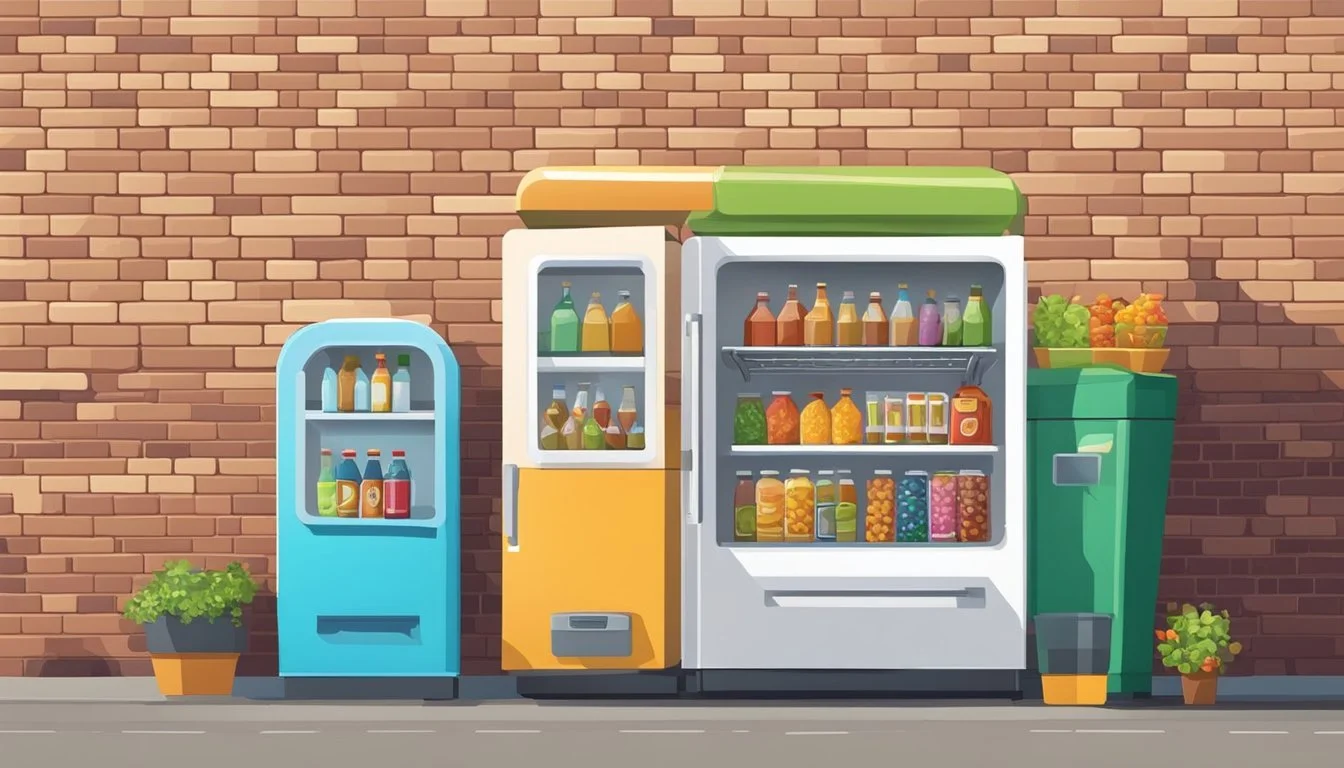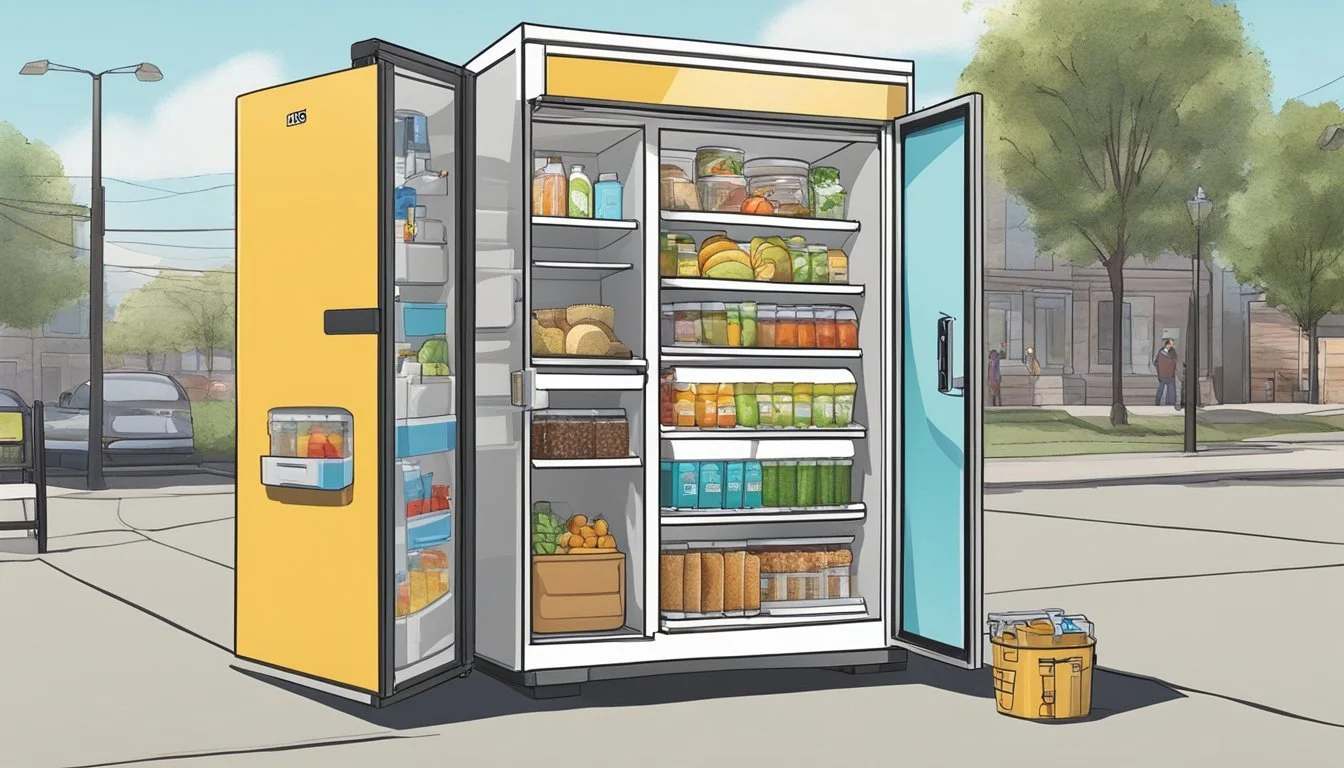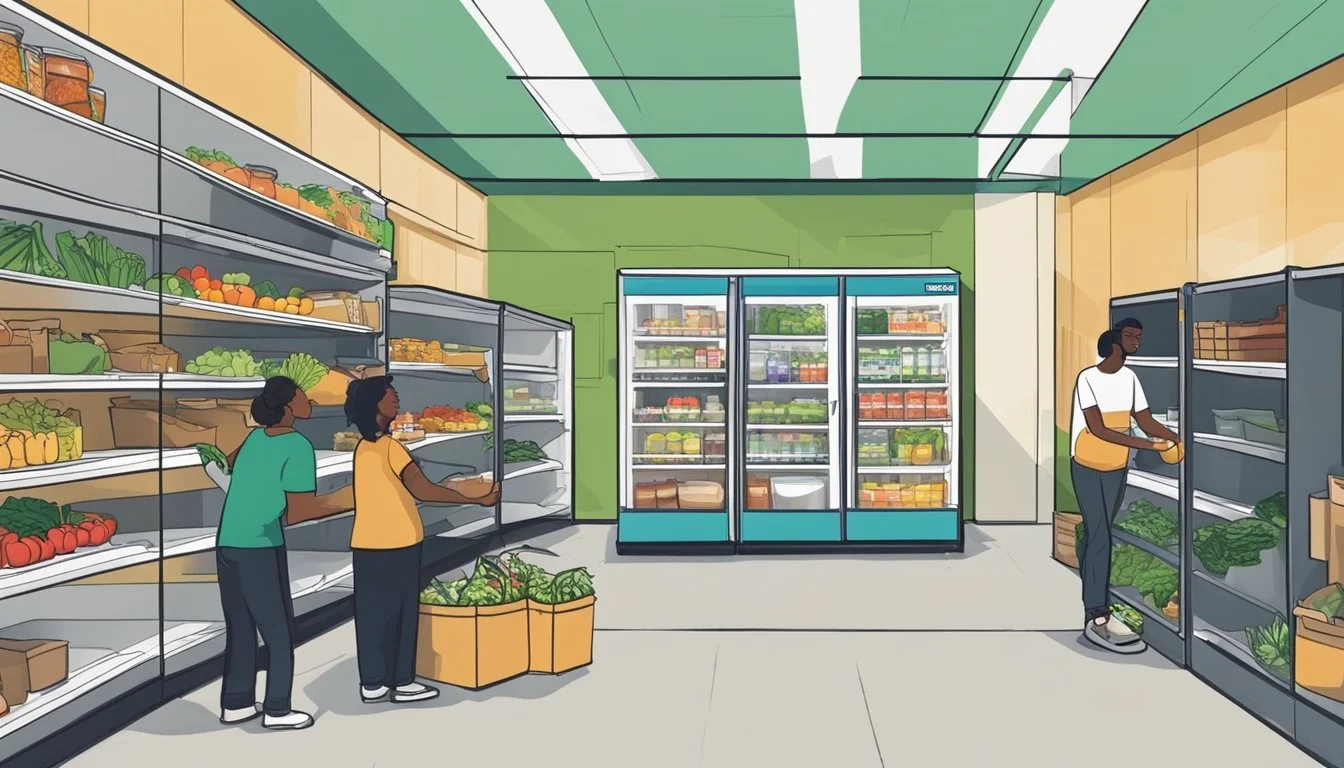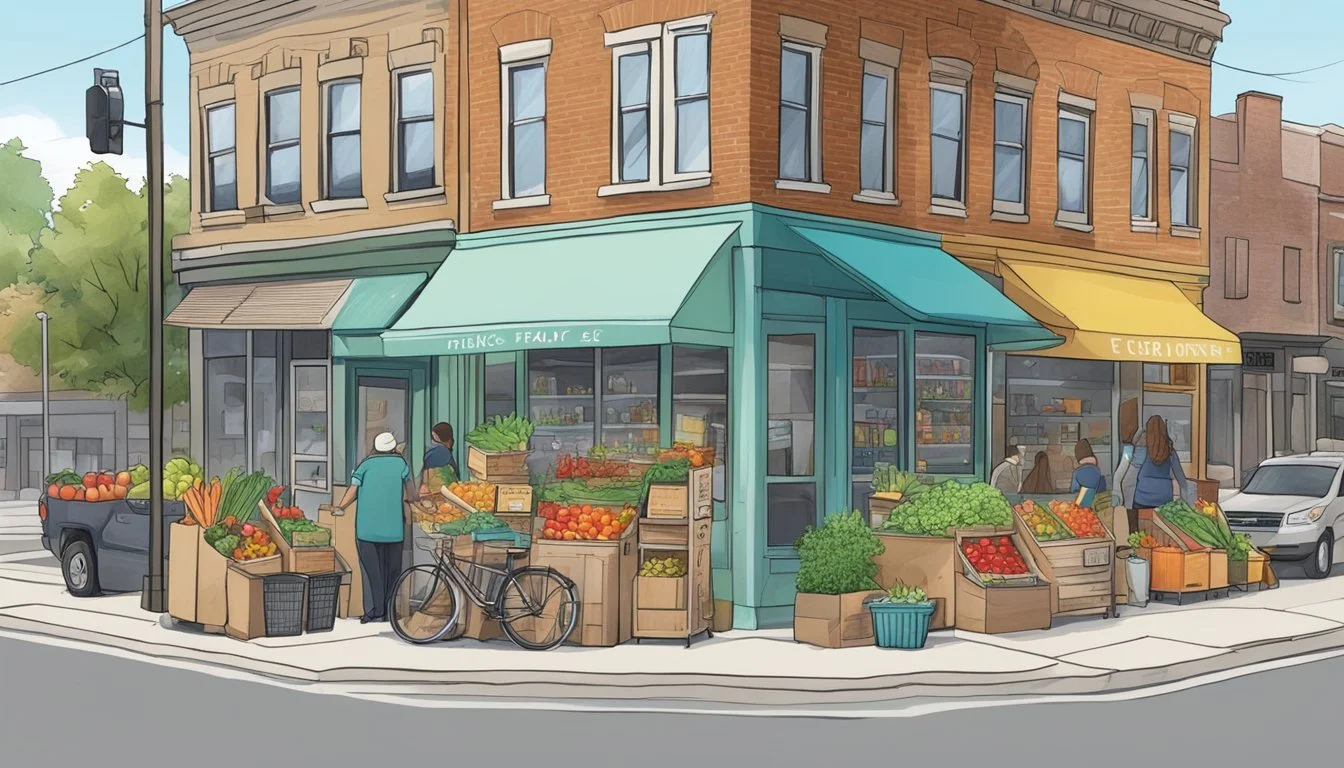Cedar Rapids, IA Community Fridge
Nourishing Neighbors in Need
In Cedar Rapids, Iowa, a notable initiative is taking root to tackle food insecurity, an issue that affects many local residents. The NewBo Community Fridge, a project established through a partnership between NewBo City Market and the nonprofit organization Feed Iowa First, represents a community-driven response to this pressing challenge. This fridge operates on a simple yet powerful principle: take what you need, leave what you can. By facilitating an exchange where community members can access fresh produce without barriers, it serves as a testament to communal support and care.
Feed Iowa First is advancing this movement by promoting accessibility to nutritious foods. The organization has extended its efforts beyond the community fridge by implementing urban farms, cultivating partnerships with local businesses, and maintaining a presence in community gardens. These endeavors ensure that Cedar Rapids residents, especially those from low-income backgrounds, have sustained access to quality produce.
The community fridge and the broader activities of Feed Iowa First are more than just food distribution points. They're part of an intricate network that addresses underlying issues of nutritional security while also fostering community connection and engagement. Through consistent availability of fresh and wholesome food, this initiative empowers individuals, nurtures health, and seeds growth both in gardens and in the lives of those it touches.
Cedar Rapids Community Fridge Overview
In Cedar Rapids, a city within Linn County, Iowa, an innovative program has taken root to address food insecurity. The NewBo Community Fridge operates on a simple yet powerful premise: "Take what you want, leave what you can." Through this initiative, residents have access to free, fresh produce that is readily available at the NewBo City Market.
Partnership:
Feed Iowa First: Works together with NewBo City Market.
Objective: To combat hunger within the community by providing fresh food options.
Accessibility:
The fridge is publicly accessible, ensuring that community members can obtain food as needed.
There is an encouragement of donations from those who can spare fresh produce to support the initiative.
Operation:
Located at NewBo City Market.
Running under the ethos of community sharing and support.
The Community Fridge model has proven effective in other cities, and its adoption in Cedar Rapids underscores a commitment to community care. The program is a testament to the collaborative spirit of residents and organizations within Cedar Rapids and Linn County. It serves as a locus for not just food sharing but also fostering community bonds.
Engagement:
Local residents can both contribute to and benefit from the fridge.
Outreach efforts ensure that individuals are aware of the resource.
The NewBo Community Fridge operates as more than a place to access food; it represents a movement towards sustainable community-led initiatives that enhance quality of life and provide a safety net for those in need.
Operational Aspects
The Community Fridge in Cedar Rapids operates with a clear schedule and is maintained regularly to serve the community efficiently.
Scheduling and Accessibility
The Community Fridge operates on a set schedule to ensure that the citizens of Cedar Rapids have consistent access to fresh produce. Accessibility is a primary concern, and the agencies involved ensure that the schedule is publicized effectively. The Feed Iowa First initiative plays a pivotal role by partnering with local entities such as the NewBo City Market to distribute produce.
Operational Hours: Access is typically around the clock, providing flexibility for those in need.
Location Updates: Information on fridge locations and hours is made available to the public to maximize usage.
Maintenance and Servicing
Maintaining the appliances that power the Community Fridge is essential to the initiative's success. This includes regular servicing to ensure they run efficiently and do not contribute excessively to the utility bill.
Regular Check-ups: The fridges receive maintenance check-ups to keep them in optimal condition.
Cleanliness: They are cleaned and sanitized regularly to comply with health regulations.
Repairs: If an appliance breaks down, it is serviced or replaced promptly to avoid disruption in service.
Community Engagement and Usage
The Cedar Rapids Community Fridge provides a clear testament to the city's commitment to ensuring that all community members have access to fresh and nutritious produce. It operates on a platform of shared resources and community solidarity, where the success hinges on thoughtful usage and contributions from individuals within the community.
Usage Guidelines
The usage of the Community Fridge is governed by simple yet crucial guidelines designed to maximize its effectiveness and sustainability.
Take What You Want: Individuals are encouraged to take food they need with dignity and respect for others who may also benefit from the resources.
Leave What You Can: Those who are able contribute fresh produce or other permissible food items, maintaining the cycle of generosity.
These principles ensure that the fridge remains a reliable resource for those who need it, while also providing an opportunity for community members to support their neighbors.
Rules for food donation:
Perishable items such as fruits and vegetables are preferred.
Packaged and labeled foods must have an expiration date clearly visible.
Non-perishable food donations should be within their 'best before' timelines.
Items not accepted:
Alcohol, raw meat, and opened or homemade products, to ensure safety and health regulations are met.
Community Contributions
The success of the Community Fridge lies in the active participation and contributions from diverse sectors of Cedar Rapids:
Local Farms: Entities such as Rainbow Roots Farm play an integral part by donating part of their crop yield, ensuring a steady supply of fresh produce.
Volunteers: A strong network of individuals manages the day-to-day maintenance and organization of the fridge, contributing their time and effort.
Roles and assignments:
Monitoring the fridge cleanliness and stock levels
Organizing the food to ensure older items are used first
Attendance records:
A record of visits and donations helps track the fridge's impact and identify peak times for restocking.
Information dissemination:
Tables and charts are periodically updated to inform donors about what items are needed most.
Community outreach through social media and local bulletins raises awareness for both potential users and contributors.
Engagement comes in many forms, from the donation of surplus vegetables to the essential administrative tasks that keep the project running smoothly. This collective approach embodies a powerful resource for community support and involvement.
Partnerships and Sponsorships
The Cedar Rapids Community Fridge initiative thrives through robust local collaborations, with entities ranging from businesses to educational institutions chipping in to combat food insecurity.
Local Businesses Support
Local businesses have played a pivotal role in supporting the Community Fridge project. By either offering fresh produce or financial backing, businesses contribute to the sustainability of this communal resource. Among them, NewBo City Market and Feed Iowa First have established a distribution site that bolsters the Cedar Rapids community's access to fresh, nutritious food.
NewBo City Market: Partners with Feed Iowa First for distributing fresh produce.
Feed Iowa First: Takes a frontline position in addressing community food needs.
Educational Partnerships
Schools are at the forefront of educational partnerships, incorporating the initiative into their curriculum to foster awareness among students. The Cedar Rapids Community School District demonstrates their commitment to social responsibility by engaging with the project. This involvement educates students on the importance of community support while also providing tangible assistance to the initiative.
Cedar Rapids Community School District: Integrates Community Fridge efforts within their student programs.
Local Schools: Collaborate to host educational sessions aimed at understanding food insecurity.
By forming these partnerships, Cedar Rapids not only tackles immediate hunger needs but also educates its citizens on the underlying issues, creating a more informed and compassionate community.
Impact Assessment
The impact of the Cedar Rapids, IA Community Fridge is quantified by examining direct feedback from beneficiaries and the local community effects.
Beneficiaries' Feedback
Beneficiaries of the Community Fridge often report tangible benefits in terms of access to fresh produce and reduced grocery expenses. Reviews highlight the fridge as a valuable resource, helping to mitigate the cost of living pressures. They provide insights into the direct impact on individuals and families who rely on this community service.
Effects on Local Community
The Community Fridge has become an integral part of Cedar Rapids' support network. It has boosted the metro area’s efforts to combat hunger and food wastage. Local businesses and organizations contribute resources, strengthening community ties. This symbiotic relationship encourages more sustainable living within the community, promoting a cycle of giving and support.







